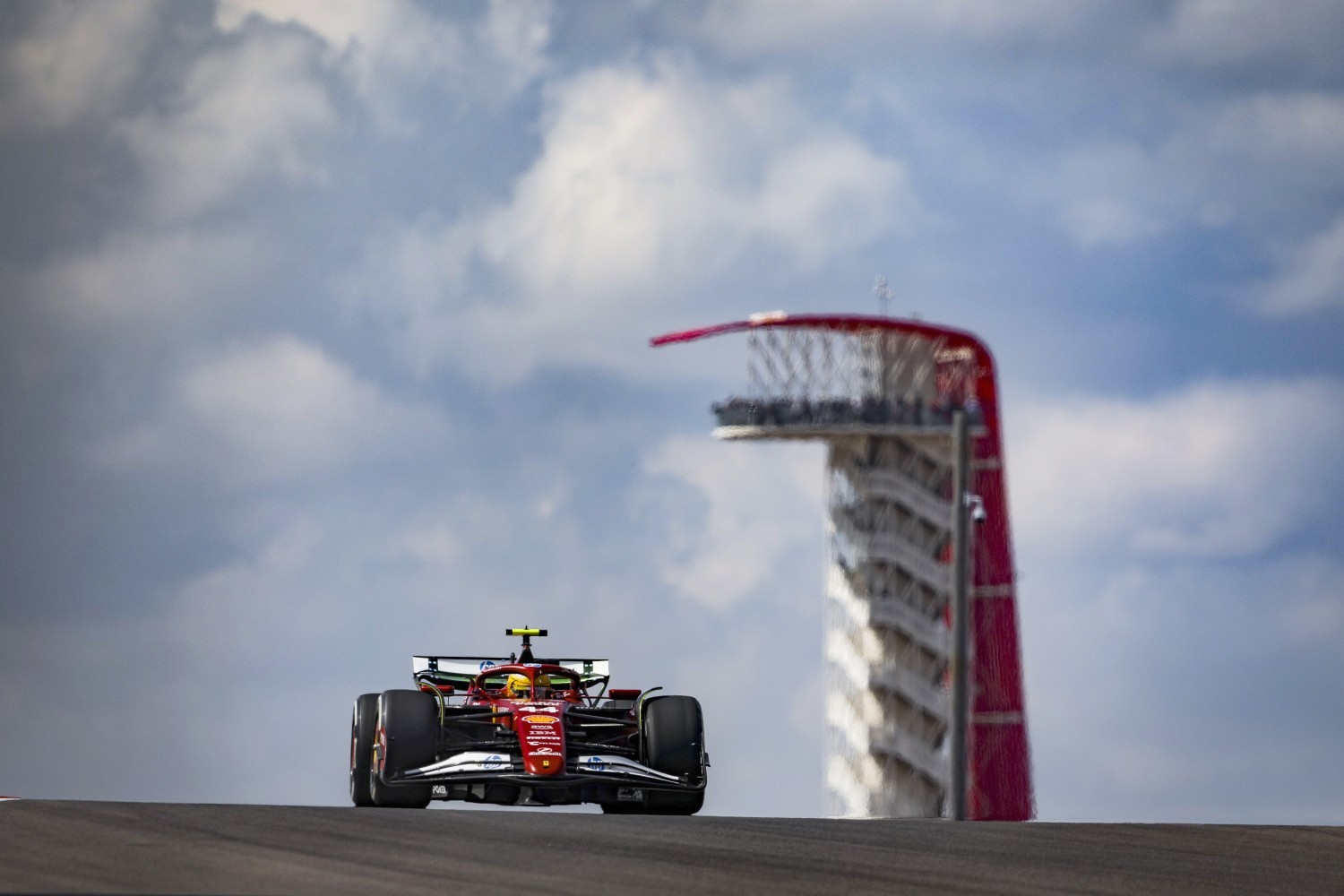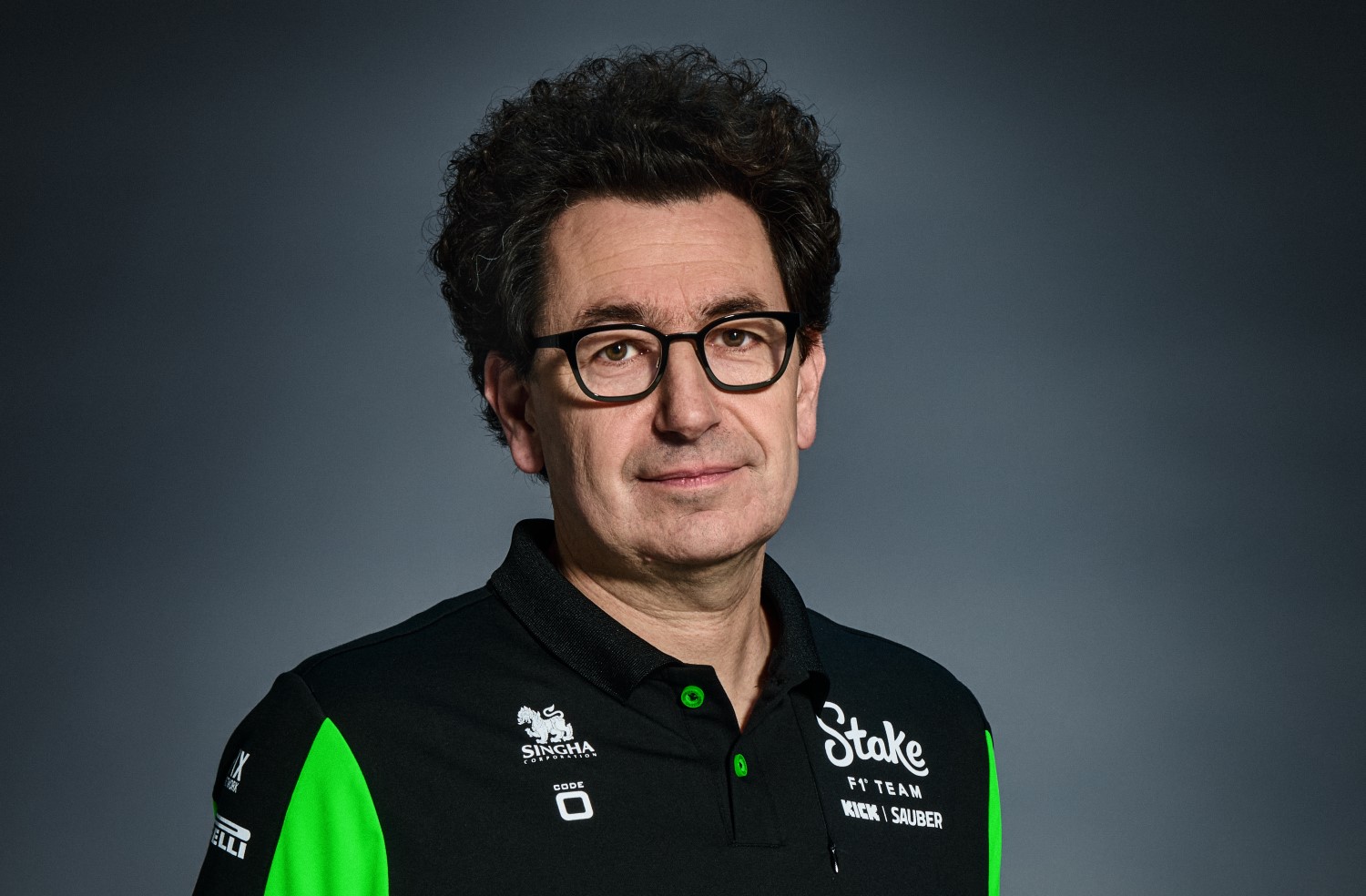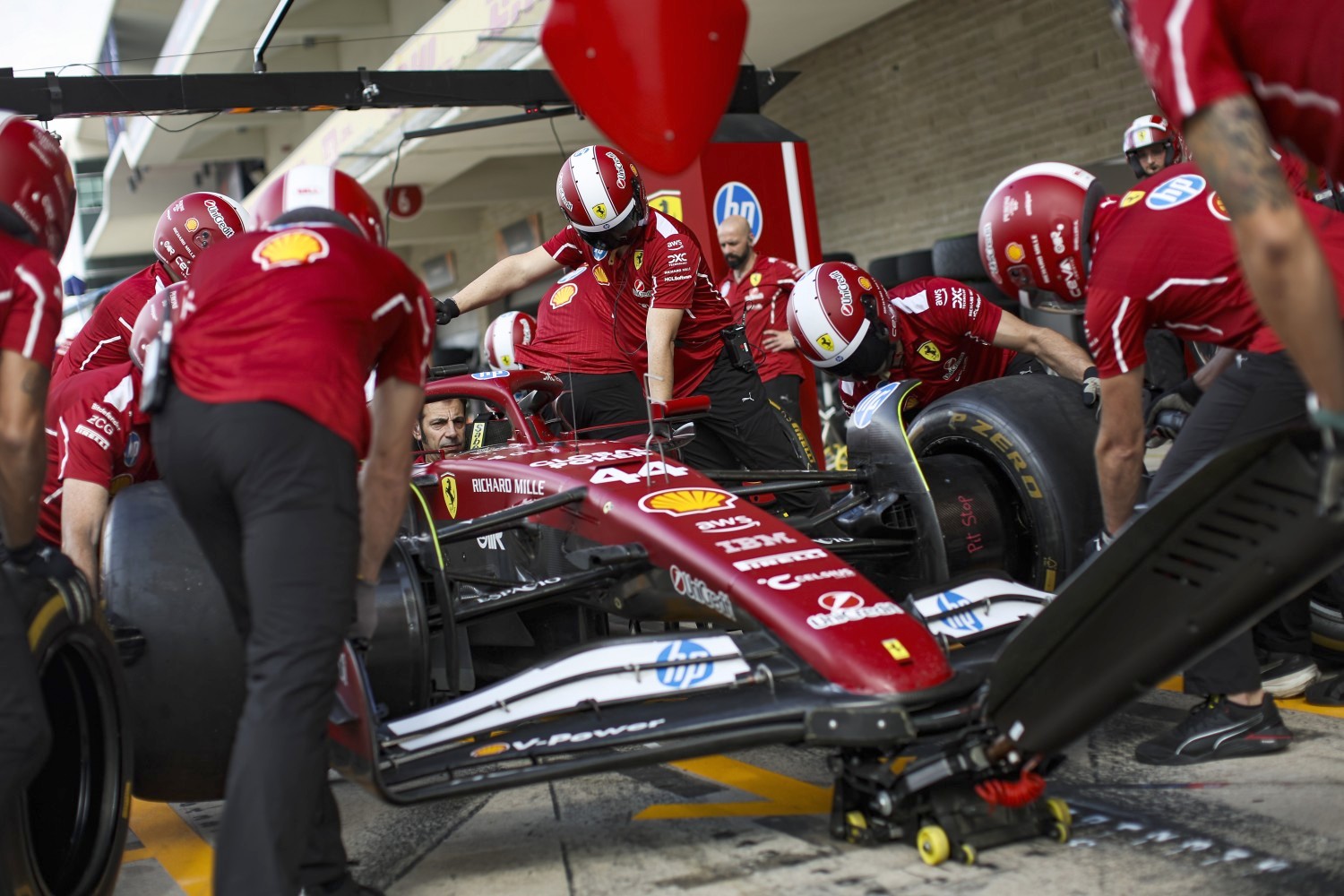Formula 1 News: Ex-boss Binotto feels for Ferrari amid ongoing slump
(GMM) Ferrari’s struggles have returned to center stage in Austin, where both Charles Leclerc and Lewis Hamilton were left far adrift of the front-runners in qualifying – prompting Italy’s Autosprint to headline: “Austin is throwing reality in Ferrari’s face.”
The Maranello team’s form slump shows little sign of easing, with Leclerc and Hamilton only scraping into the lower half of the top ten on outright pace at the Circuit of the Americas.
Hamilton admitted the eight tenths deficit was “huge,” while Leclerc – speaking to Sky Italia – sounded equally pessimistic about Ferrari’s chances of closing the gap.

“I’d be surprised if we find a solution that allows us to make a significant advance,” he said. “I hope I’m wrong, but it seems like this is the car’s full potential.
“Where are we losing time? Everywhere. Honestly, my lap in Q3 was clean. Maybe if we’d done a few more laps on the medium tire in practice this morning, we could have set up the car a little better. We could have had a tenth or a tenth, but that’s not enough.
“We’re so far behind now.”
Former Ferrari team principal Mattia Binotto, now leading the Sauber-Audi project, told Autosprint he still feels sympathy for his old team.

“I feel for the Ferrari fans,” Binotto said. “And I think of the many people who work in Maranello. I know they give their heart and soul every day, and it’s not easy to live with these results.
“I’m deeply sorry to see this – but at the same time, I’ve opened a new chapter.”
Ex-Ferrari driver and commentator Ivan Capelli also believes the Scuderia has lost its way.
“Ferrari is currently experiencing a period of confusion – technically, in terms of timing, in terms of management,” Capelli told Sky Italia. “It always seems like the wrong decision is being made. It’s all very complicated, and that’s the trend.
“Leclerc had an issue in FP1, but there was another management issue in the session with the drivers queuing up. It’s clear they’re getting the timing wrong. All of this builds up a tension that makes you always say at the end of the session: ‘We made a mistake again this time.'”

